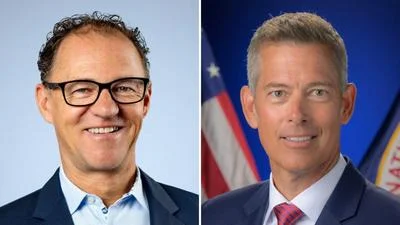The Congressional Record is a unique source of public documentation. It started in 1873, documenting nearly all the major and minor policies being discussed and debated.
“KEYSTONE XL PIPELINE ACT” mentioning the U.S. Dept of State was published in the Extensions of Remarks section on pages E72-E73 on Jan. 14, 2015.
The publication is reproduced in full below:
KEYSTONE XL PIPELINE ACT
______
speech of
HON. SHEILA JACKSON LEE
of texas
in the house of representatives
Friday, January 9, 2015
Ms. JACKSON LEE. Mr. Speaker, I rise to speak about the Keystone XL Pipeline Project and the legislation before us, H.R. 3.
Mr. Speaker, the Keystone XL project proposed by TransCanada, a Canadian company, would build new pipeline to transport Alberta oil sands crude and crude oil produced in North Dakota and Montana to a market hub in Nebraska, and from there to Gulf Coast refineries.
The proposed pipeline would deliver an estimated 830,000 barrels of oil per day. One of the most appealing aspects of the project is the positive economic impact it is expected to have on the economy.
Let me just take one state's economy and realize what would happen with this particular effort. There would be a $2.3 billion investment in the Texas economy, creating more than 50,000 jobs in the Houston area, providing $48 million in state and local tax revenues, and increasing the gross domestic product of the state by $1.9 billion.
I favor the job creation potential of the Keystone XL Pipeline project, and voted accordingly less than a month and a half ago, on November 14, which was H.R. 5682. Yet the legislation contains several provisions that are of great concern to me which I feel inclined to address.
First, because the pipeline would cross an international border, construction requires a presidential permit and would be subject to applicable state laws and permitting requirements.
To issue a presidential permit, the State Department, after consulting with other federal agencies and providing opportunities for public comment, must determine that the project would serve the national interest.
Because the Keystone XL project would constitute a major federal action with a potentially significant environmental impact, it is also subject to environmental impact statement requirements of the National Environmental Policy Act (NEPA).
The bill, however, declares that a presidential permit is not required for approval of the Keystone XL pipeline's northern route from the Canadian border through Nebraska even though the project crosses an international border. This is unprecedented.
Second, H.R. 3 deems that environmental impact statements issued to date would be considered sufficient to satisfy all requirements of the NEPA and the Endangered Species Act.
As a senior member of the Committee on the Judiciary, I have a problem with ``deeming'' something done that has not been done in fact.
Third, the bill vests exclusive jurisdiction regarding legal disputes over the pipeline or the constitutionality of this bill would be granted to the U.S. Court of Appeals for the District of Columbia and requires claims regarding the pipeline to be brought within 60 days of the action that gives rise to the claim.
It is unduly burdensome to require aggrieved parties to bear the considerable expense and hardship of traveling from their homes in North or South Dakota, Nebraska, Kansas, Oklahoma, or Texas to Washington, DC to vindicate their legal rights.
Mr. Speaker, I also believe the bill before could have been improved had amendments been made in order.
For example, two proposed amendments, one from a Democrats and one Republican, making oil sands petroleum eligible to pay an excise tax into the Oil Spill Liability Trust Fund and another splitting revenue generated by the pipeline's construction between DOE's energy efficiency and renewable energy research and deficit reduction, were not made-in-order.
Had the bill been subject to amendment and the amendments offered in the Rules Committee been made in order and approved, the bill before us would be improved markedly.
And Mr. Speaker, as the Leader of this body, you are well-aware that when amendments are made-in-order, the rank-and-file can at least feel that they had a say in the process but when a Closed Rule is put forth--it does not stoke optimism about the legislative process for the 114th Congress.
____________________








